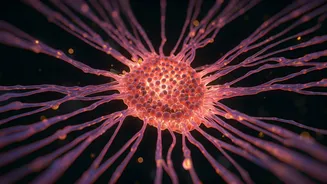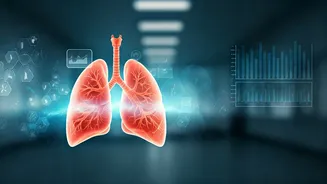Caffeine's Cognitive Kick
Both coffee and green tea provide a caffeine boost, the key player in their brain-enhancing effects. Caffeine is known to stimulate the central nervous
system, which improves alertness, attention, and reaction times. This is why many people opt for a cup of coffee or tea to jumpstart their day or power through a slump. However, the effects aren't exactly the same. The caffeine content varies, influencing the intensity and duration of the cognitive boost. Understanding these nuances is the first step in deciding which beverage better aligns with your desired outcome for a mental uplift.
Green Tea's Calming Influence
While coffee tends to deliver a more intense and immediate jolt, green tea offers a smoother, more sustained cognitive lift. This is largely due to the presence of L-theanine in green tea. L-theanine is an amino acid that can cross the blood-brain barrier and has been shown to promote relaxation without drowsiness. It works synergistically with caffeine to counteract the jitteriness sometimes associated with coffee, resulting in a more balanced state of alertness and focus. This combination can lead to improved cognitive performance, including enhanced working memory and attention span, without the crash often experienced after a coffee binge.
Alzheimer's and Brain Health
Beyond immediate cognitive enhancements, both coffee and green tea are linked to long-term brain health and a reduced risk of neurodegenerative diseases like Alzheimer's. Coffee contains antioxidants and other compounds that protect brain cells from damage, helping to reduce inflammation. Similarly, green tea is packed with antioxidants, particularly catechins, which have neuroprotective effects. Studies suggest that regular consumption of either beverage may contribute to the prevention of cognitive decline. However, the precise mechanisms and the extent of these protective effects continue to be areas of active research.
Coffee's Quick Advantages
Coffee is often the go-to for immediate effects. It is known to offer a quick spike in energy and focus, making it ideal for short bursts of concentration. Its high caffeine content means a faster onset of effects, which can be beneficial for tasks requiring immediate attention. However, this also means that the effects might wane quickly, sometimes leading to a caffeine crash later on. Coffee's effects are often perceived as more stimulating and invigorating, which is preferred by some for its ability to sharpen the mind and increase productivity during those crucial hours when quick thinking is required.
Green Tea's Steady Focus
Green tea's gentler approach is great for those who prefer a less jittery experience and longer-lasting concentration. The balanced caffeine and L-theanine combination fosters a more sustained and composed state of focus. This makes green tea an excellent choice for tasks that require sustained attention and mental endurance, like studying or creative work. The smoother energy release prevents the energy dips often associated with coffee. It delivers consistent mental clarity without the anxiety some people experience with higher caffeine levels. This steadiness helps in maintaining focus throughout the day, and it makes it a suitable option for long periods of cognitive activity.
Choosing the Best Brew
The 'better' choice comes down to personal preference and individual needs. If you need a quick boost with intense focus, coffee might be the better option. For those seeking sustained attention and a calming effect, green tea could be superior. Consider how caffeine affects you. If you are sensitive to caffeine, green tea's lower caffeine content could be preferable. Ultimately, the best beverage is the one that best supports your cognitive goals. You could even combine elements, alternating between the two to adjust your brain boost strategy to match your needs and the nature of the tasks at hand.



















